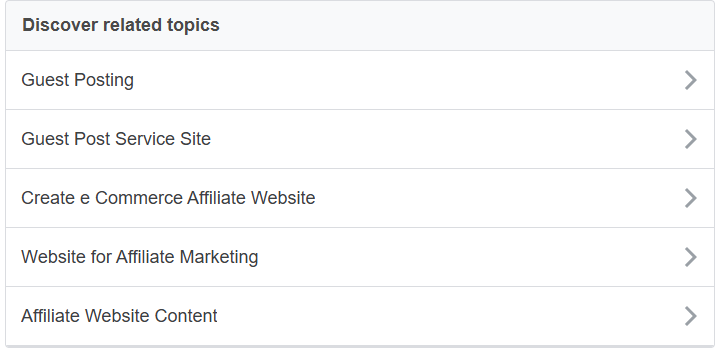Introduction
In today’s world, staying healthy goes beyond just eating right or working out. True Health & Wellness encompasses mental, physical, and emotional well-being. At acrediter.com, we’re here to guide you on a comprehensive journey to achieve balance and live a healthy, fulfilling life. This article covers everything from stress management to fitness, nutrition, and self-care to ensure you have the tools to maintain your health and wellness long term.
Part 1: Understanding Health & Wellness
Health & Wellness is a holistic approach to living well. It’s not just about your physical health; it’s about nurturing your body, mind, and spirit. Here are the four main pillars of wellness:
-
Physical Health
This refers to maintaining a healthy body through exercise, good nutrition, and sleep. -
Mental Health
Mental wellness is just as important. It involves managing stress, mental clarity, and positive thinking. -
Emotional Health
Being emotionally healthy means understanding and managing your emotions. It involves expressing feelings in healthy ways and maintaining balanced relationships. -
Spiritual Health
Spiritual wellness involves having a sense of purpose and connection to something greater than yourself. It can be connected to religion, philosophy, or personal values.
These four aspects work together to create a harmonious and balanced lifestyle.
Part 2: Creating a Holistic Health Plan
Achieving true wellness requires planning and setting intentional goals. To help you on your journey, here’s a breakdown of how to create your own personalized health and wellness plan:
-
Start with Your Goals
What do you want to achieve? Whether it’s weight loss, muscle gain, stress reduction, or emotional healing, define your goals clearly. Write them down and make them specific, measurable, and time-bound. -
Develop a Balanced Diet
Your body needs a variety of nutrients to function properly. Focus on a balanced diet that includes:
- Fresh fruits and vegetables
- Whole grains and legumes
- Lean proteins (chicken, fish, tofu, etc.)
- Healthy fats (olive oil, avocado, nuts)
Avoid processed foods, sugary snacks, and sodas that can cause spikes in blood sugar and lead to long-term health problems.
-
Incorporate Regular Exercise
Physical activity should be part of your daily routine. Whether it’s walking, yoga, running, or strength training, aim for at least 30 minutes of moderate activity most days of the week. Exercise can help reduce the risk of chronic diseases, boost your mood, and improve sleep. -
Get Quality Sleep
Good sleep hygiene is critical for both physical and mental health. Try to establish a regular sleep schedule and create a relaxing bedtime routine. Avoid blue light (from phones and computers) and caffeine close to bedtime. -
Manage Stress Effectively
Stress is inevitable, but how you handle it makes a big difference. Practice mindfulness, meditation, and deep breathing to manage stress. Taking time for yourself is just as important as taking care of your body.
Part 3: Mental and Emotional Well-being
Your mental and emotional health are essential components of overall wellness. Here are a few strategies for boosting mental clarity and emotional strength:
-
Mindfulness and Meditation
Mindfulness is the practice of being present in the moment without judgment. Meditation can help improve focus, reduce anxiety, and promote relaxation. Even just 10 minutes a day can make a significant difference in your mental well-being. -
Positive Thinking
The way you think impacts the way you feel. Positive affirmations and cultivating an optimistic mindset can reduce anxiety and help you approach challenges with confidence. -
Build Strong Relationships
Social support is crucial for mental health. Spend time with loved ones, connect with like-minded people, and engage in activities that foster meaningful relationships. -
Seek Professional Help
If you’re struggling with anxiety, depression, or emotional challenges, don’t hesitate to seek help from a mental health professional. Therapy, counseling, and coaching can provide tools to cope with difficult emotions.
Part 4: Self-Care and Recovery
Taking time for self-care is vital in today’s fast-paced world. Self-care can be simple, like reading a book or taking a relaxing bath, or more intentional like a vacation to recharge. Here are some self-care practices to include in your routine:
-
Take Breaks
Whether at work or home, taking short breaks throughout the day is important. Stepping away from your usual environment gives you a mental refresh and increases productivity. -
Do What You Love
Engage in hobbies or activities that bring you joy, whether it’s painting, hiking, or playing a musical instrument. Doing things you love can reduce stress and help you maintain a healthy work-life balance. -
Practice Gratitude
Gratitude has been shown to improve mood, reduce stress, and increase happiness. Take a few moments each day to reflect on the things you are grateful for.
Part 5: The Importance of Preventive Health Care
Preventive health care involves regular checkups and screenings that help detect potential issues before they become serious. Here’s how to stay proactive with your health:
-
Annual Physicals
Visit your doctor for an annual checkup to assess your overall health. This includes blood tests, immunizations, and screenings for chronic conditions like high blood pressure and diabetes. -
Mental Health Screenings
If you feel overwhelmed or stressed, it’s important to seek professional help. Mental health screenings can help detect early signs of anxiety, depression, or other conditions. -
Vaccinations and Preventive Screenings
Stay up to date with necessary vaccinations, especially flu shots, and ensure you get routine screenings like mammograms, colonoscopies, and cholesterol tests.
Conclusion
Achieving a balanced life requires attention to every aspect of your health and wellness. By taking small, actionable steps to improve your physical, mental, and emotional well-being, you can enjoy a fulfilling and healthy lifestyle. Remember, consistency is key. Start with small changes, and over time, they will add up to lasting improvements. For more wellness tips and resources, visit acrediter.com and explore our Health & Wellness category.
